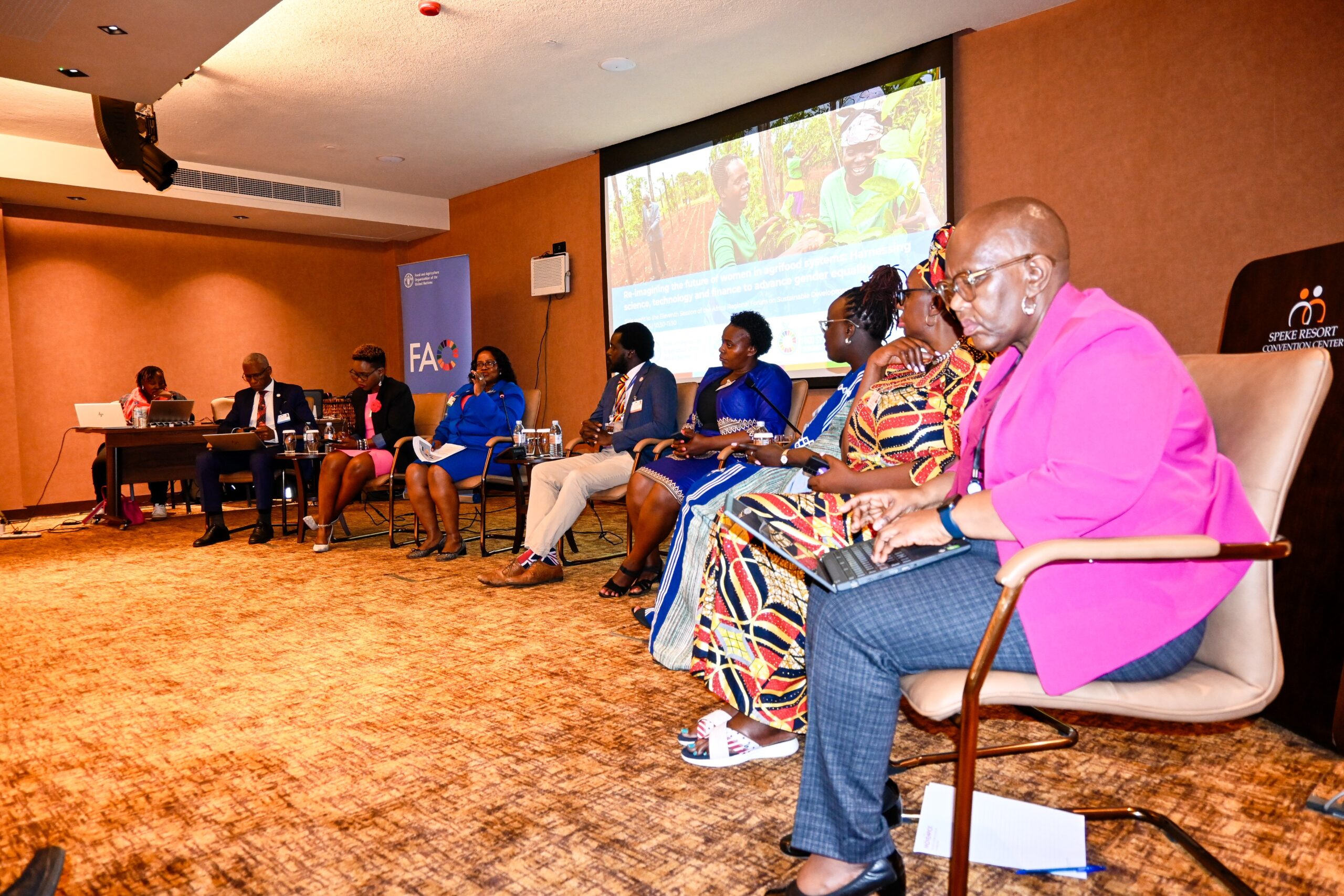News
Agri-Food Innovators Call for Gender-Inclusive Solutions at ARFSD-11
As the world strives to achieve zero hunger, leaders have been urged to recognize and support innovations led by women in agriculture, who remain the primary food producers for families.
This was echoed by Agnes Kirabo, Executive Director of Food Rights Alliance (FRA), emphasized the pivotal role women and girls play in achieving all 17 Sustainable Development Goals (SDGs).
She was speaking at a side event, “Re-imagining the Future of Women in Food Systems”, organized by the Food and Agriculture Organization (FAO) and chaired by the country representative for FAO, Mr. Antonio Querido, during the 11th Session of the Africa Regional Forum on Sustainable Development (ARFSD-11, at Speke Resort Munyonyo on Thursday.
“They are the heart of the agri-food system, and they can be the soul if we simply commit to doing small, meaningful actions within our reach. These women don’t need token gestures or empty conversations about their struggles. What we need is to harness the opportunities they present to tackle the SDGs, and we all benefit,” said Kirabo.
Kirabo urged leaders to go beyond policy documents and reports and instead listen directly to women involved in the agri-food system to understand the real challenges they face in producing healthy, nutritious food.
She recounted a transformative initiative in eastern Uganda, where her organization introduced the “Farm Planning Model” after community consultations revealed a paradox: food-producing regions still suffered from hunger.
“The model is based on the principle of putting food first, even at household level,” Kirabo explained. “Farmers in Africa often rely on household resources and labor. Typically, the head of the household directs efforts toward ‘money parcels’, land used to grow income-generating crops, while women are later assigned less fertile plots when resources and energy are depleted.”
This inequity, she noted, significantly limits women’s productivity. As a solution, the Farm Planning Model encourages families to prioritize food security, beginning with household needs.
“We introduced simple, accessible technologies like soil testing kits to help households match crops with soil fertility,” she said. “The result? Food production increased, land under cultivation decreased, and women had more time. With their food needs met, some even rented land to expand production.”
Also speaking at the event, Manige Merabu, CEO of Superchillo Uganda, highlighted how agricultural ventures like mushroom farming are helping rural and urban women improve nutrition and financial independence.
Superchillo works with women to grow mushrooms and pumpkins, tapping into a high-demand market to produce organic soups and curries.
“Mushroom farming brings daily income and has a short gestation period,” Merabu said. “But we’ve seen domestic violence caused by poor household cash flow. In many homes, women manage production, but men control the money. When they see cash flowing in, some demand it, and in extreme cases, destroy mushroom structures.”
To counter this, Superchillo has introduced inclusive training programs that involve both women and men, with support from partners like the World Food Programme in Karamoja.
Merabu also stressed the importance of bringing technology closer to rural communities, noting a lack of awareness about available resources like the Uganda Development Bank (UDB).
“People ask, ‘What is Grow? Is there a facility?’ Many don’t even know how to access financial support,” she said. “Even when they do, men often fear the process, believing it will cost them their property.”
She called for more inclusive financial empowerment and capacity-building efforts that bridge the gender gap and foster simple innovations to address community challenges.
Participants also raised concerns about land rights, noting that lack of land ownership among women is a significant barrier to food security.
“In many parts of Africa, women still cannot inherit land,” said a participant from Kenya. “A woman may only access land if she marries a man who inherited large parcels from his father. But when her father distributes land, she’s often excluded simply because of her gender.”
During the side event, the FAO Director, Stefani Fotiou stated that despite their critical role in the food system, women continue to face widespread and systematic discrimination.
“Gender inequalities are both a cause and a consequence of unsustainable food systems and inequitable food access, consumption and production. We are convinced that fostering gender equality is not only a moral imperative but it is also a powerful catalyst for food systems transformation,” said Mr. Stefani
The 11th ARFSD session continues this week, bringing together stakeholders across the continent to explore inclusive, sustainable development strategies aligned with global and continental agendas. The event ends today, having started with pre-event meetings on Monday, 7th April 2025, at Speke Resort Munyonyo.





































